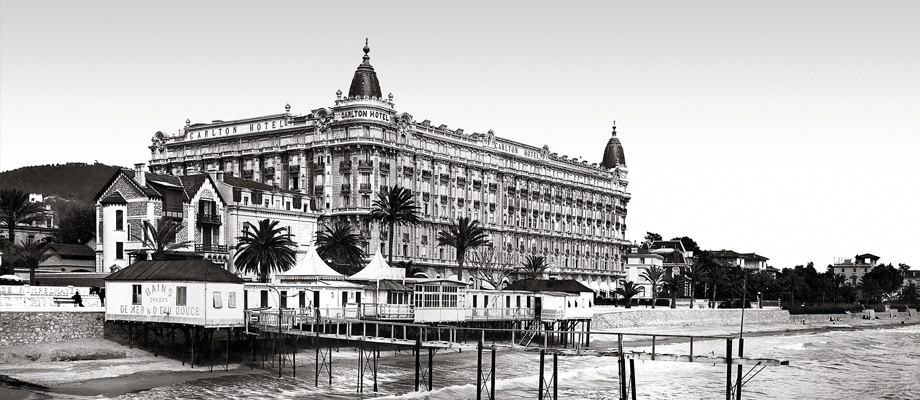About a week after Guy Grand purchased the smart Carlton Hotel in Cannes, excavation work was begun, presumably for the purpose of an elaborate expansion of the lower and ground section of this already magnificent structure. Rumor had it that a vast complex of underground passages and rooms were to connect the hotel with the beach area opposite, thus giving Carlton residents—generally acknowledged to be the “smartest of the smart”—direct access to their private oceanfront. In any case, excavation work went ahead on a monumental scale for about three years.
As literally acres of stone and soil beneath the building were removed, they were replaced with a network of structural steel supports. Gradually, the size of the cavern beneath the hotel increased until, on May 13, 1973, it was one black square and over a thousand feet deep. On this day all work stopped (to the great relief of the residents) and, although there were as yet no visible benefits from the project, it was generally assumed that these would soon be dramatically evident.
Due to the incredible whirl of press and social events during the gala Cannes Film Festival, very little notice was given to the curious announcement which came over the hotel loud-speakers at six o’clock that morning: “Mesdames, monsierus… preparez-vous a descendre.”
An hour later it was announced: “Attention. Descente en cinq minutes…” And this was repeated once in modern Arabic. At five minutes after seven, the steel beams supporting the building were telescoped inwards and the huge hotel slowly sank out of sight. People whose rooms had looked out onto the sea now awoke to find themselves staring at a wall of rust-colored earth.
Although the residents of the Carlton were eventually rescued, the hotel itself was never again seen.
Investigations have not yet determined the purpose of this strange and very costly project.
The internationally famous hotelier, Mr. Jack Hilton, when asked his opinion as to what could have been the “purpose” in putting the multi-million dollar Carlton Hotel below ground, was not able to shed light on the subject, and, in fact, refused to discuss it, beyond his simple statement: “Frankly, I think it was the work of a goddam nut.”
Terry Southern was a satirical novelist and pioneering New Journalist perhaps best known as the screenwriter behind Dr. Strangelove and Easy Rider. He was a driving force behind the early Paris Review. At the annual Paris Review Revel next week, the Terry Southern Prize for Humor, a $5,000 award honoring humor, wit, and sprezzatura, will be presented to David Sedaris.
from The Paris Review https://ift.tt/2pO2IeU

Comments
Post a Comment